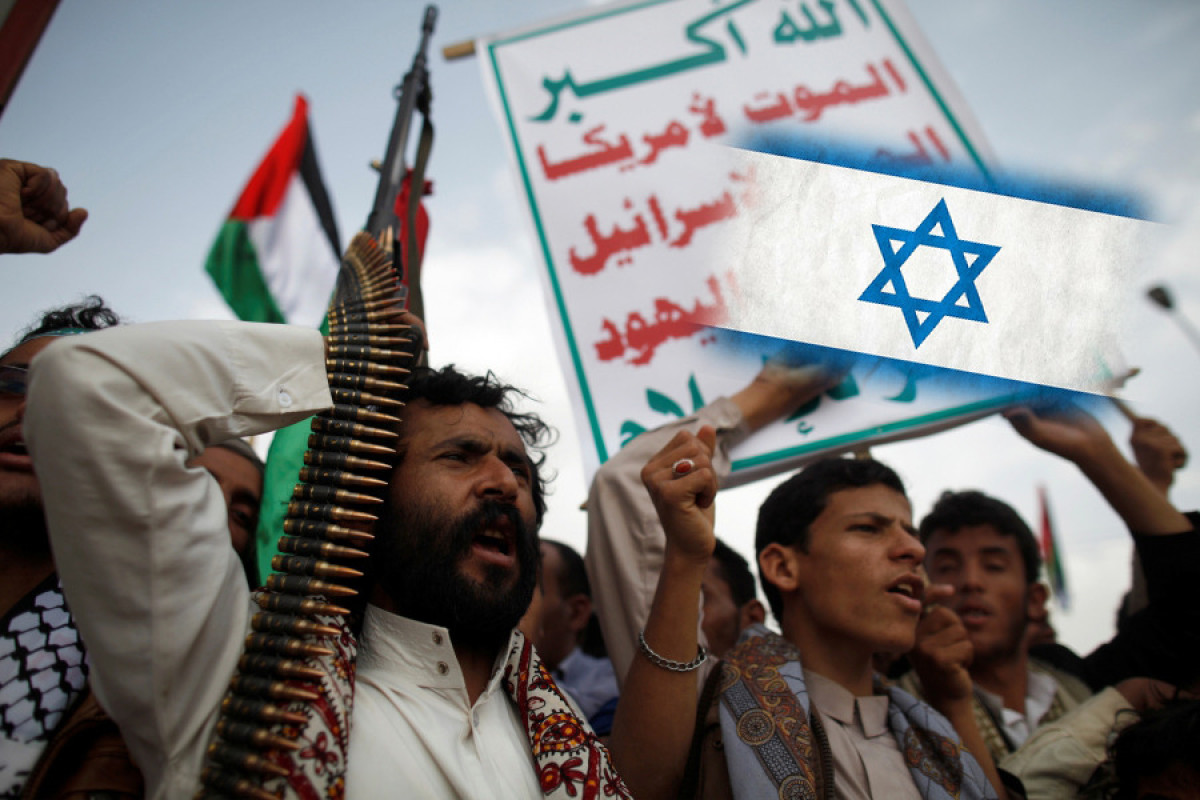Confronting Houthis: Israel's Deferred Front
- 31 Jan 2024


Israeli Defense Minister Yoav Gallant declared on December 26, 2023, that since the Hamas attack on Israel on October 7, 2023, his country has been engaged in six out of seven fronts. The identified fronts are Gaza, the West Bank, Lebanon, Syria, Iraq, Yemen, and Iran. The analysis of Gallant's statements not only reveals the deferred front that Israel has yet to address but also clarifies the Israeli vision of the multifront comprehensive war being waged. This can be outlined as follows:
Israel's perspective on the Houthi front
Israel's perspective on the Houthi front has evolved over time. Since the outbreak of the Yemeni crisis in 2011 and the conflict between the Houthi group and the Yemeni state, Israel has closely followed developments. The interest heightened when Saudi Arabia formed an Arab coalition against the Houthi group, which posed a significant threat to Gulf Cooperation Council states. This was seen as part of Iran's consistent policy of destabilising the region and exporting its revolutionary ideals.
In the 1960s, during the first Yemeni civil war following the overthrow of the monarchy, Zaydi-affiliated royalists had favourable relations with Israel. This alignment was a strategic move in Israel's foreign policy, which sought to establish ties with religious and ethnic minorities in the Arab world to counteract the boycott imposed by Arab states. However, after Israel's significant gains in the 1967 June war, the importance of "Hashemite politics" diminished.
Despite this historical connection, the Houthi group, aligned with Iran, gradually accepted its role as part of Iran's regional influence. This alignment theoretically places them, like other Iranian proxies in the region, such as Hezbollah, armed groups in Syria and Iraq, and the Palestinian Hamas and Islamic Jihad movements, in a position of confrontation with Israel. The Houthi group's acceptance of tasks from Iran in exchange for political, military, and economic support has contributed to this dynamic.
Houthi Attacks as a Card in Israel's Favour:
The Houthi takeover, particularly their control of the Yemeni port of Hodeidah in 2014, has drawn renewed attention from Israel mere months before the onset of the war. Despite the potential threat posed by the Houthi-Iran alliance, Israel initially took minimal action against this, even as the Houthi-controlled port of Hodeidah played a role in restricting Israeli ships during the current Gaza war.
Several factors explain Israel's delayed response to the Houthi threat in the Red Sea region:
Israel's Perspective on US and Western Policies Regarding the Houthis
When the United States exercised its veto power multiple times to block the UN Security Council from passing a ceasefire resolution between Israel and Hamas in Gaza, Tel Aviv expressed gratitude for Washington's assistance in preventing international condemnation. However, Israel did not reciprocate this gratitude when US Navy forces in the Red Sea intercepted missiles and drones launched by the Houthis toward Israel.
This divergent response in both situations illustrates Israel's perception of Washington's actions toward the Houthi group. Israel views these actions as a natural response by Washington to safeguard its interests in the Middle East. While Israel may benefit from this policy, it does not feel the same level of indebtedness to Washington as it does for using the veto power in the Security Council to shield it from specific condemnation.
This Israeli belief is deduced from analyses published in Israeli newspapers rather than official statements from Israeli officials. The majority of these analyses concentrate on the punitive political and military actions taken by the United States against the Houthis, including their re-designation as a terrorist organisation and airstrikes on their positions in Yemen and boats in the Red Sea. These analyses suggest that the United States has specific reasons related to its policy and interests in the Middle East, including:
Indeed, the primary Israeli interest lies in avoiding a confrontation with the Houthis. This approach allows Israel to either focus on existing open fronts in Gaza, the West Bank, Lebanon, and Syria or to let the United States and certain European countries shoulder the burden alone. Israel hopes that the international community recognises not only the gravity of the Houthis' actions, posing a threat to international navigation in the Red Sea, but, more crucially, the peril of showing leniency toward Iran. From Israel's perspective, Iran is the financial supporter of all "terrorist movements" in the Middle East. Consequently, Israel advocates for a decisive confrontation with Iran to eliminate this threat once and for all.
Hence, Israel perceives that the policy embraced by the United States and European countries not only safeguards their interests but also assumes the responsibility of confronting the Houthis on behalf of other nations. Given this perspective, Israel questions why it should willingly take on the task of defending the interests of others rather than prioritising its own if it were to engage in a direct confrontation with the Houthis.
In essence, based on this perspective, Israel will refrain from responding to Houthi attacks unless they result in casualties among its citizens or soldiers. The front between Israel and the Houthis will be the sole arena where the Hebrew state avoids direct engagement with Iran's regional proxies. Nevertheless, it is assured that Israeli intelligence, committed to pursuing those responsible for attacks on Israel, will consider Houthi leaders among its targets. Additionally, Israel will collaborate with various regional countries to cut off the sources of their funding and armament in the future.
The stated views express the views of the author and do not necessarily reflect the views of the Center or the work team.
Comments